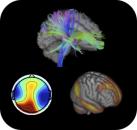Career Opportunities
Love cutting edge multidisciplinary clinical research involving the brain?
The Clinical Computational Neuroimaging Group is actively recruiting for several research positions. If any of the below are of interest to you and you meet the qualifications, please contact the lab director, Dr. Ona Wu (ona.wu@mgh.harvard.edu).
Post-doctoral Research Fellow
DESCRIPTION
The Clinical Computational Neuroimaging Group at the Athinoula A. Martinos Center for Biomedical Imaging at the Massachusetts General Hospital and Harvard Medical School is seeking a highly motivated, results-oriented research scientist for a full-time position as a post-doctoral research fellow. Through the development and clinical translation of quantitative imaging biomarkers and artificial intelligence, the Clinical Computational Neuroimaging Group is focused on improving the diagnosis, prognosis, treatment and outcomes of patients with brain injury. Some of the methods that are used to achieve this goal include functional and structural MRI connectivity analysis and computational modeling. These techniques are applied to investigate mechanisms and outcomes in the fields of stroke, coma recovery after cardiac arrest, and traumatic brain injury. Successful candidates will work with an interdisciplinary team of investigators and receive mentorship by faculty. The position is ideal for scientists with technical expertise and MRI knowledge who are interested in patient-oriented clinical research.
QUALIFICATIONS
Applicants must hold a doctoral degree in engineering, computer science, applied physics, or equivalent, and have a solid track record in conducting independent research during their Ph.D.
Applicants should have experience in neuroimaging, specifically diffusion MRI and functional MRI, and network connectivity analysis. The ideal candidate will have experience with structural and functional connectivity analyses and dynamic functional connectivity research.
Applicants should email the following: a letter of interest, a CV, and three professional references to Dr. Ona Wu (ona.wu@mgh.harvard.edu).
Clinical Research Coordinator II
Description
GENERAL SUMMARY/ OVERVIEW STATEMENT
PRINCIPAL DUTIES AND RESPONSIBILITIES
Please note, the functions below are representative of major duties that are typically associated with these positions. Specific responsibilities may vary based upon departmental needs. Similarly, not all duties that have been outlined will be assigned to each position.
Specific responsibilities will include but are not limited to the following:
- Develops and implements recruitment strategies
- Assists with screening, informed consent, and enrollment of patients
- Administers standardized testing tools to subjects
- Coordinates and/or performs study procedures
- Conducts subject interviews and assessments of subjects’ well-being and cognitive function, both in-person and by telephone, and maintains the data
- Creates and executes training sessions for new and ongoing studies
- Trains and orients coordinators and fellows
- Completes and maintains study screening logs, IRB documentation, regulatory files, source documentation, and case report forms
- Collects and enters data as specified by protocols
- Meets regularly with study PIs to review subject and study data and assists with the monitoring for and reporting of adverse events and protocol deviations
- Assists with writing and altering protocols, informed consents and other study documents. Drafts and submits applications to the IRB, including initial submissions, amendments, and continuing reviews
- Works with Program Manager and PI to prepare study reports and assists with drafting grant applications
- Creates standard operating procedures to standardize trial activities at the site
- Searches medical literature and retrieves journal articles and other references
- Acts as a study resource for patients, families and staff
- Schedules and performs study follow-up visits including neuropsychological testing batteries, and MRIs
- Maintains inventory, stocks and orders supplies. Calibrates or updates study equipment
- Actively participates in meetings and teleconferences with other research colleagues by organizing and presenting study screening and enrollment results, sharing best practices, and troubleshooting challenges
- Collects and prepares data for monitoring, audits, and analysis by following Quality Assurance and Quality Control procedures, and participates in data monitoring/ audits
- Assists with other research-related administrative tasks as needed
Skills and competencies:
The successful candidate will be highly motivated, eager to interact with patients with neurologic illness and their families in a fast-paced hospital setting, and curious about diseases of the brain. A high level of maturity is essential, as the coordinator is given access to personal and confidential medical information. Strong organizational and interpersonal skills, attention to detail, and the ability to prioritize multiple tasks are essential. Must demonstrate analytical skills, ability to resolve technical problems, ability to interpret acceptability of data results and have a working knowledge of data management programs.
This position is ideal for someone interested in pursuing graduate studies or a career in the fields of medicine, neuroscience, public health, or clinical research. It involves extensive patient interaction as a member of a clinical research team.
Minimum Technical Standards:
Comfort with computers, specifically the Windows operating system, is essential. Candidates should also be comfortable searching the Internet, as well as performing literature searches using Medline. Proficiency in Microsoft Word, Access and Excel, as well as the ability to learn how to use new software is also important.
QUALIFICATIONS
Education: Bachelor’s degree required.
Experience: Those with a minimum of 1-2 years of directly related work experience will be considered for a Clinical Research Coordinator II position. Previous experience with MRI and/or EEG is a plus, especially data acquisition.
Applicants should email the following: a letter of interest, a resume, and three professional references to Dr. Ona Wu (ona.wu@mgh.harvard.edu).
EEO STATEMENT
Massachusetts General Hospital is an Equal Opportunity Employer. By embracing diverse skills, perspectives and ideas, we choose to lead. Applications from protected veterans and individuals with disabilities are strongly encouraged.



